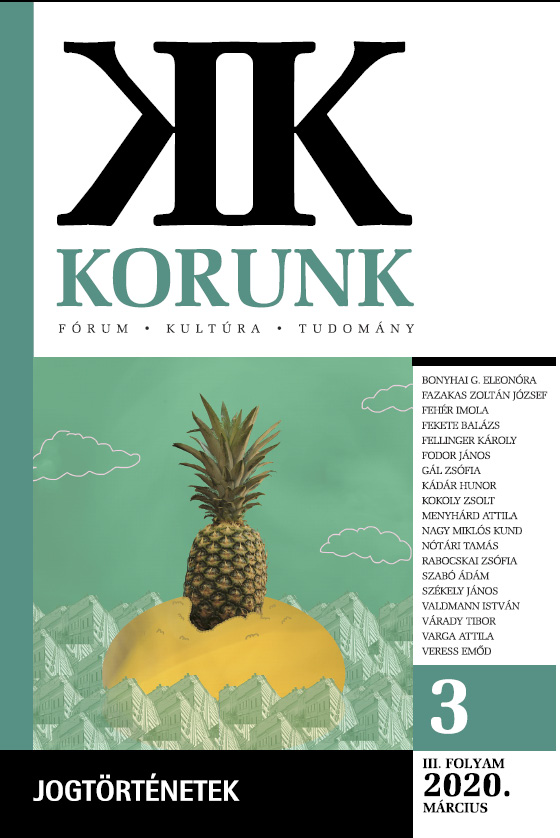A terving törvénymondók kora Erdélyben
The Age of Tervingian “Law Speakers” in Transylvania
Author(s): Ádám SzabóSubject(s): Cultural history, History of Law
Published by: Korunk Baráti Társaság
Keywords: Dacia province; Gothia; Tervingian Goths; iudex gentis; law speaker; Athanarik; oath ring; imperial brooch; premonarchical period
Summary/Abstract: The military troops as well as the Roman administration were pulled back from Dacia in 271 AD. Nonetheless, the territory of the quondam province was still considered as a strategically important zone of influence by the Roman Empire. Having suffered a defeat at Naissus in 269 AD by the Emperor Claudius II, the Tervingi (Visigoths) departed from the Greuthungi (Ostrogoths) and moved to the territory of Transylvania in 271 AD. This was probably based on an agreement with the Romans, occupying basically the already abandoned land of Dacia province. They named their new land Gutþiuda (Gothia). Their presence can be identified by the archaeological culture Sântana de Mureº – Csernyakhov. The Tervingi were led by an elected law speaker or judge, referred to in Latin texts as the “iudex”, and not by a king. There are at least two objects from the 4th century treasure hoards that are relevant from the point of view of Tervingian “public law”: an oath ring and an onyx brooch. Functionally, the oath ring reaffirmed the jurisdictional role of the leaders. The large onyx or “imperial” brooch could be originally among the insignia of Tervingian law speakers at least from the middle of the 4th century, symbolizing that they saw themselves as being of equal rank with the Roman emperor. The meeting of Emperor Valens and iudex Athanarich at the Danube in 369 could definitely represent a suitable event for the judge of the Tervingi to show off that he is on par with the emperor. In 376 AD the Huns defeated the Tervingi, who fled from Transylvanian territory to the Roman Empire.
Journal: Korunk
- Issue Year: 2020
- Issue No: 03
- Page Range: 11-26
- Page Count: 16
- Language: Hungarian

